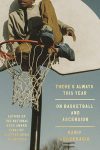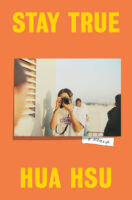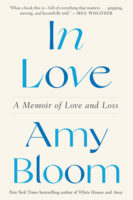
Guest Post by Kevin Brown
Hanif Abdurraqib is a poet as well as an essayist, and he brings a lyrical style to his latest book, There’s Always This Year: On Basketball and Ascension. While the subtitle might discourage non-basketball fans from cracking the cover, this work is more of a meditation on the narrative of uplift than anything else.
Abdurraqib does write about basketball—whether that’s players from his neighborhood whom the reader has never heard of or LeBron James—but he does so in service of the idea of ascension. He’s questioning the narrative that white people want to tell about African Americans—and other minorities, but primarily Black people—overcoming difficult odds to succeed, whatever they need that success to look like at that moment. Thus, he celebrates the people from his neighborhood, city, and even state, who were great, if only for a moment, some of whom never went any further.
In fact, he not only celebrates individuals, but the place he is from. Abdurraqib loves his neighborhood, and he loves Columbus (and Cleveland, as well, when it comes to basketball), and Ohio. That love shines through in every section of the book—he’s structured it like a basketball game, complete with the clock counting down—and it’s difficult for the reader not to share that love by the end.
The people and places Abdurraqib loves don’t have to be anything other than what they are; by implication, neither does the reader and the places they love.
There’s Always This Year: On Basketball and Ascension by Hanif Abdurraqib. Random House, March 2024.
Reviewer bio: Kevin Brown has published three books of poetry: Liturgical Calendar: Poems (Wipf and Stock); A Lexicon of Lost Words (winner of the Violet Reed Haas Prize for Poetry, Snake Nation Press); and Exit Lines (Plain View Press). He also has a memoir, Another Way: Finding Faith, Then Finding It Again, and a book of scholarship, They Love to Tell the Stories: Five Contemporary Novelists Take on the Gospels. Twitter @kevinbrownwrite





